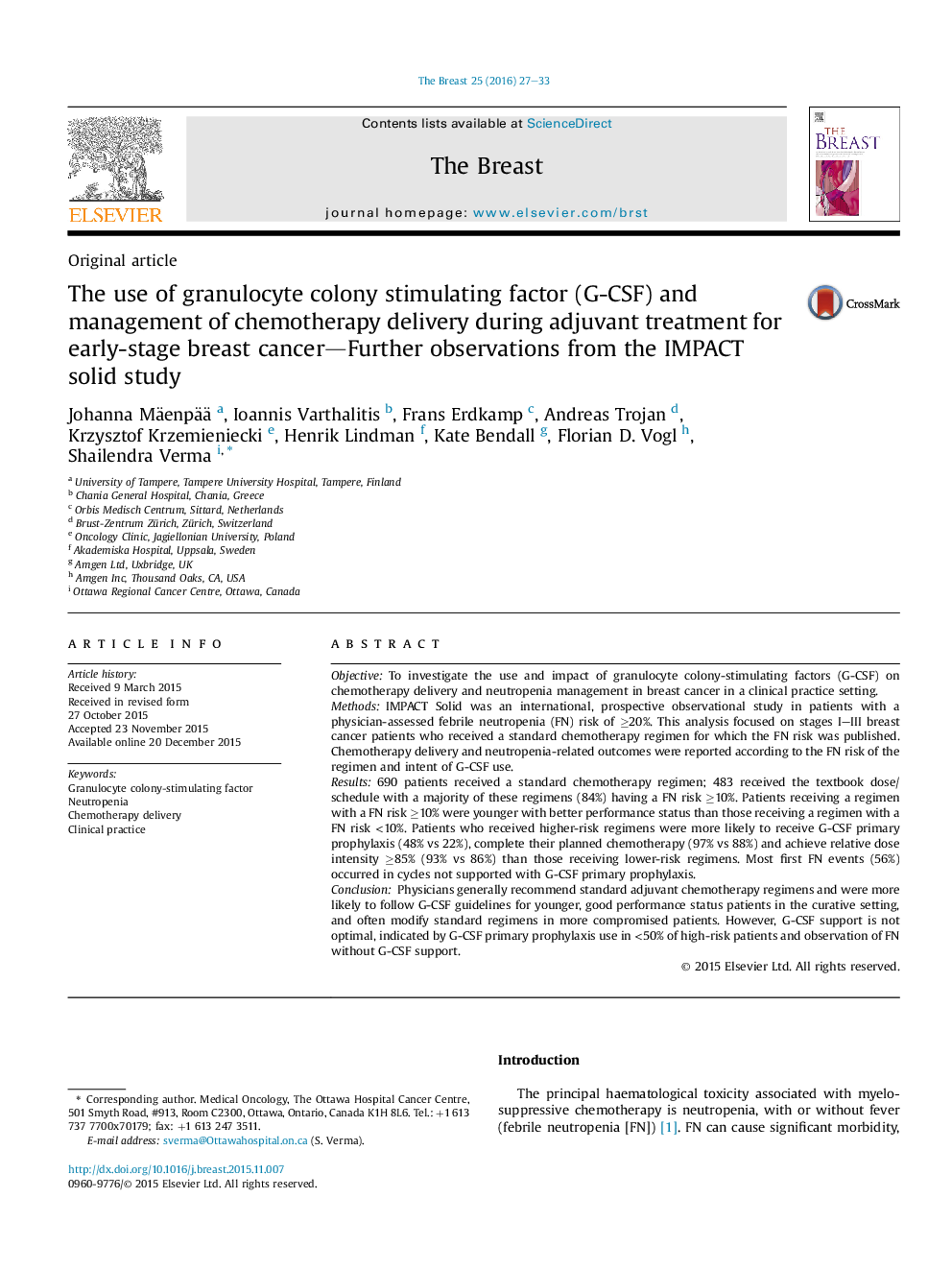| کد مقاله | کد نشریه | سال انتشار | مقاله انگلیسی | نسخه تمام متن |
|---|---|---|---|---|
| 3908443 | 1599355 | 2016 | 7 صفحه PDF | دانلود رایگان |

• G-CSF guidelines are not always followed in routine clinical practice.
• Improved neutropenia management is needed in older patients.
• Use of growth factors, particularly in high-risk regimens is suboptimal.
ObjectiveTo investigate the use and impact of granulocyte colony-stimulating factors (G-CSF) on chemotherapy delivery and neutropenia management in breast cancer in a clinical practice setting.MethodsIMPACT Solid was an international, prospective observational study in patients with a physician-assessed febrile neutropenia (FN) risk of ≥20%. This analysis focused on stages I–III breast cancer patients who received a standard chemotherapy regimen for which the FN risk was published. Chemotherapy delivery and neutropenia-related outcomes were reported according to the FN risk of the regimen and intent of G-CSF use.Results690 patients received a standard chemotherapy regimen; 483 received the textbook dose/schedule with a majority of these regimens (84%) having a FN risk ≥10%. Patients receiving a regimen with a FN risk ≥10% were younger with better performance status than those receiving a regimen with a FN risk <10%. Patients who received higher-risk regimens were more likely to receive G-CSF primary prophylaxis (48% vs 22%), complete their planned chemotherapy (97% vs 88%) and achieve relative dose intensity ≥85% (93% vs 86%) than those receiving lower-risk regimens. Most first FN events (56%) occurred in cycles not supported with G-CSF primary prophylaxis.ConclusionPhysicians generally recommend standard adjuvant chemotherapy regimens and were more likely to follow G-CSF guidelines for younger, good performance status patients in the curative setting, and often modify standard regimens in more compromised patients. However, G-CSF support is not optimal, indicated by G-CSF primary prophylaxis use in <50% of high-risk patients and observation of FN without G-CSF support.
Journal: The Breast - Volume 25, February 2016, Pages 27–33